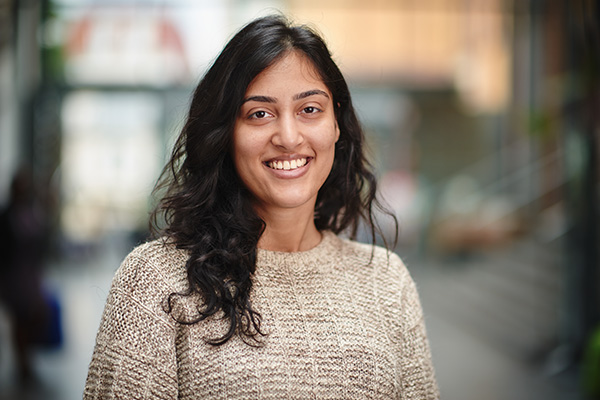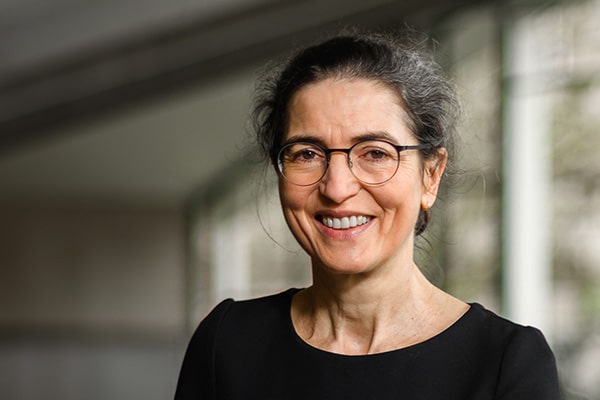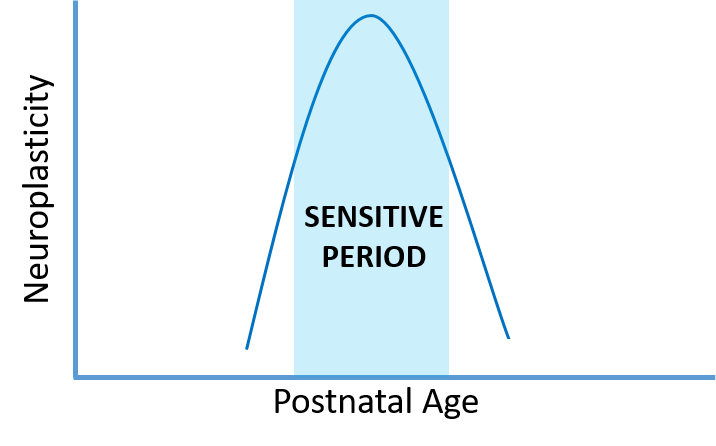Sensitive period plasticity and functional recovery after sight restoration
Rashi Pant – Hector Fellow Brigitte Röder
Visual experience during a sensitive period is crucial for the normal development of the brain. Individuals who are treated for congenital cataracts more than a few weeks from birth suffer from low visual acuity as well as specific deficits (such as impaired face processing). This project investigates the possible mechanisms that mediate this sensitive period, by non-invasively assessing brain structure and function in congenitally and developmentally visually deprived individuals.
A theoretical depiction of how plasticity changes with age, and peaks during a sensitive period.
Individuals who were born totally blind and have their sight restored in later childhood continue to suffer from visual impairments. This is presumably due to a lack of relevant visual experience within time windows of heightened plasticity during brain development, called sensitive periods. If visual input is not received during this time, animal research has suggested that the structural and functional organization of the brain is not properly tuned, resulting in impaired behavior. Studies in sight recovery individuals offer a unique opportunity to understand the neural mechanisms of sensitive periods in humans. Results will allow us to understand how early experience affects future brain functioning and behavior — a key open question in neuroscience with a high impact on quality of life and socioeconomic development.
This doctoral project is part of a collaboration between Hector Fellow Prof. Dr. Brigitte Röder, and the LV Prasad Eye Institute in Hyderabad, India, providing access to humans with special sight histories. We work with individuals born with dense congenital bilateral cataracts, who later undergo cataract removal surgery. We use non-invasive neuroscience methods to access brain parameters in this group, and compare them with individuals who suffered a transient phase of visual deprivation later in life. Brain parameters will be related to behavioral outcomes, allowing us to better tailor rehabilitation efforts for the visually impaired. Additionally, the project will help us understand how learning at different ages can be promoted.

Rashi Pant
University of HamburgSupervised by

Brigitte Röder
Psychology & MedicineHector Fellow since 2017


